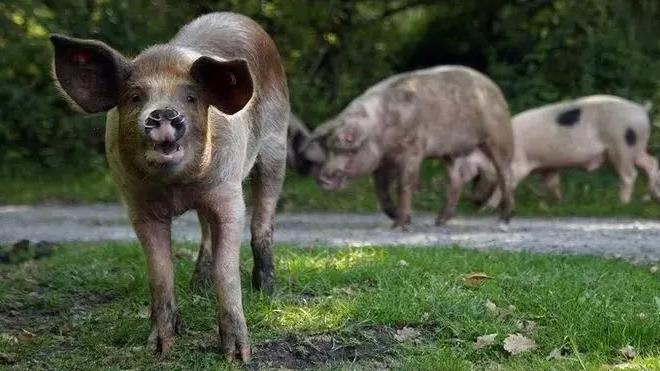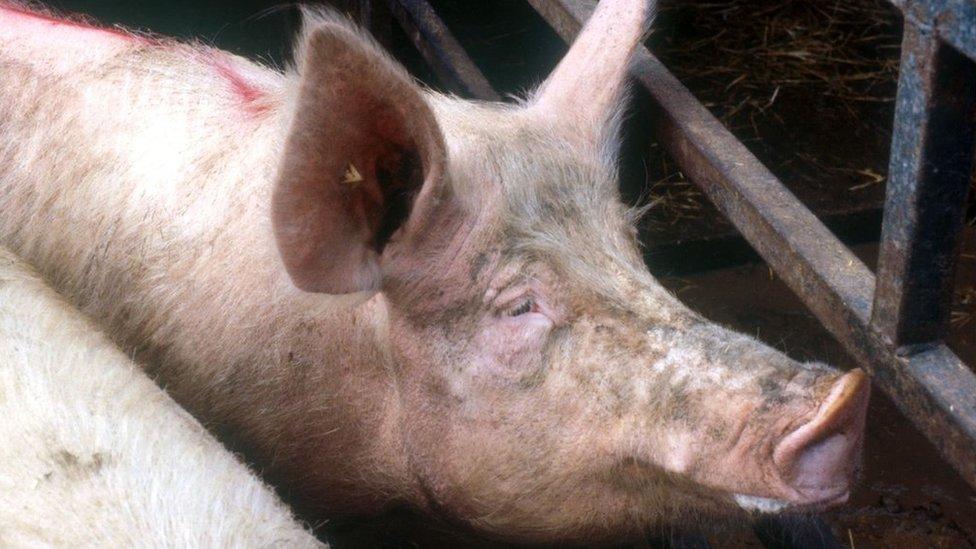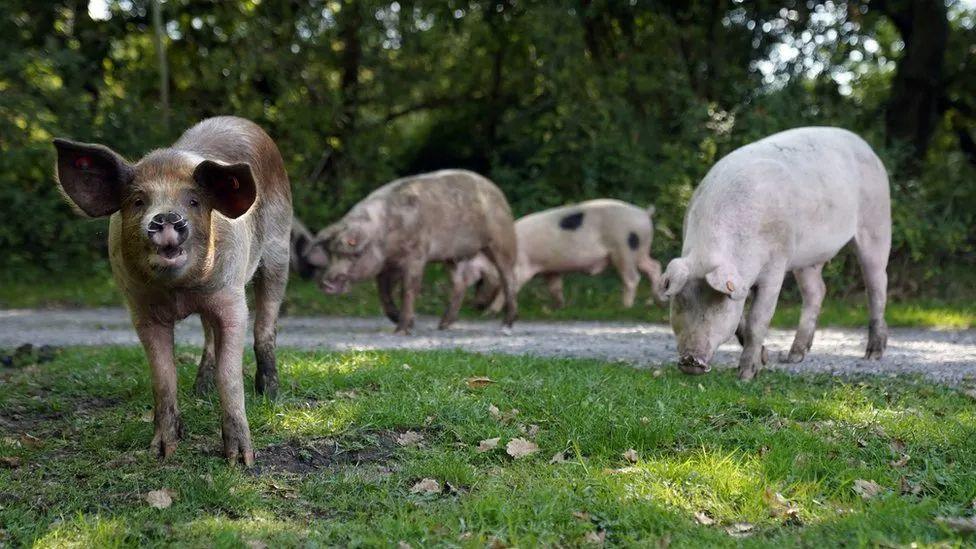Restrictions to prevent African swine fever

The new measures will come into effect on Saturday
- Published
Restrictions on importing pork to the Isle of Man from Europe are set to come into effect in a bid to minimise the risk posed by African swine fever.
While no outbreaks have been reported in the British Isles, the move comes as the contagious disease has spread across Europe, killing thousands of pigs and wild boars.
Under the measures, which apply from Saturday and mirror restrictions implemented by the UK, pork imports from the European Union are required to meet strict production, packaging, and labelling standards.
Chief veterinary officer Amy Beckett said the move was to "prevent the introduction of the virus to the island, and to protect hundreds of Manx pigs".
'Illegal imports'
Under the changes, pork imports would also need to arrive by a border control post with export health certification, unless transhipped or intended for personal use.
Travellers would only be able to bring in products that weigh less than 4.4lb (2kg), unless they could show it met EU commercial standards.
The measures "target both backyard production and illegal commercial imports" that attempt to bypass checks by "claiming larger quantities of pork products are for personal use”, Dr Beckett said.
A spokesman for the Department of Environment, Food and Agriculture (Defa) said the disease did not affect humans.
Defa Minister Clare Barber said the department advised "all travellers to avoid bringing, buying, ordering on the internet, or requesting any pork products" to the Isle of Man from affected parts of Europe.
That included fresh or frozen meat, dried or cured meats, sausages, salamis, or pate, she added.
Why not follow BBC Isle of Man on Facebook, external and X, external? You can also send story ideas to IsleofMan@bbc.co.uk
Related topics
- Published1 September 2022

- Published16 September 2024
